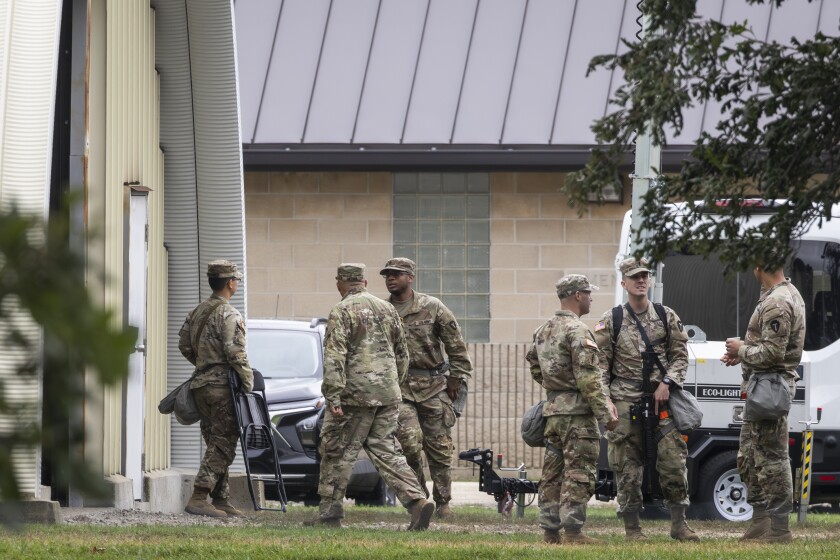URGENT UPDATE: A new survey reveals that a significant majority of Chicago residents strongly oppose the deployment of the National Guard for policing, casting doubt on federal intervention strategies in the city. The ChicagoSpeaks poll, conducted by NORC at the University of Chicago, shows that 56% of Chicagoans find the use of the U.S. military and National Guard in local law enforcement “unacceptable.”
This critical poll comes as tensions rise following a federal court ruling. On October 9, U.S. District Judge April Perry temporarily barred the federalization and deployment of the National Guard in Illinois for at least 14 days. Earlier, on October 4, President Donald Trump authorized the deployment of 300 Illinois National Guard troops, later bolstered by 200 troops from Texas and 14 from California. The National Guard was dispatched amid the Trump administration’s controversial deportation campaign launched in early September, which officials claimed was necessary to counter “ongoing violent riots and lawlessness.”
Despite these government claims, Judge Perry criticized the administration’s portrayal of the situation, stating that there is “no credible evidence” of rebellion in the state. The poll indicates that while 71% of Chicagoans believe crime is a significant issue in the city, they largely reject federal military intervention as a solution.
Notably, 69% of those surveyed oppose the military or National Guard taking control of local police departments, highlighting a clear sentiment against federal overreach. The findings also reveal a stark partisan divide. Among Republicans, 79% support National Guard involvement in deportation efforts, while a striking 84% of Democrats oppose it. Similarly, 70% of Democrats are against military assistance for local policing, compared to 78% of Republicans who find it acceptable.
This poll, conducted from September 16-29 with a sample of 1,361 adults, reflects a well-rounded view of Chicago’s diverse population. The margin of sampling error is plus or minus 3.7 percentage points, providing reliable insights into public opinion regarding crime and law enforcement in the city.
As the debate continues over the role of federal forces in local policing, residents are left questioning the efficacy of such measures amid rising crime concerns. The immediate future will reveal if government strategies adapt to the clear disapproval expressed by citizens or if the deployment of military resources will persist despite local opposition.
Stay tuned for further updates as this developing story unfolds.






































































